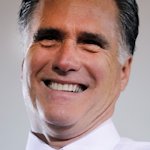
The Candidates and Science 2012 - Page 2
Climate Change
Readers of this blog know that I have struggled with the issue of climate change for most of my adult life. My position four years ago was more extreme than the position I hold today, but from a political perspective, my hopes for how my ideal president would tackle the subject has changed very little. No government should be involved in funding only the science that agrees with its politics, and no government should try to strongarm a capitalist economy into doing what it believes is in the best interests of the people. Manmade climate change may be a real threat, but if it is, the solutions will not be found in the offices of a government agency or legislative chamber. My ideal candidate would have enough respect for science to recognize that, and would not buckle under the pressure to proclaim that he or she is a savior of mankind because he wants the government to do something severe that could damage an already fragile economy.
 | | You can trust the government; they did such a great job with CFLs. Oh, wait... |
Mitt Romney has said, "I believe based on what I read that the world is getting warmer, and...I believe that humans contribute to that," and also, "itís important for us to reduce our emissions of pollutants and greenhouse gases that may be significant contributors" [9]. However, he opposes cap-and-trade legislation and costly regulatory schemes. On his website, one of his priorities is to "ensure that environmental laws properly account for cost in regulatory process" [10].
The president's position on the issue isn't surprising. When running in 2008, he called climate change an "epochal, man-made threat to the planet" [11], and he has since made it a priority in his presidency, even though he failed to get his cap and trade legislation through Congress. Whether its funding green energy and carbon capture technology, as he proudly boasts on his website, or by directing the EPA to enact tough new regulations to control carbon emissions, he has made it clear that he believes the government can and should act vigorously to combat this threat.
Embryonic Stem Cell Research
Let me clear about one thing, even though it steps on the toes of a completely separate issue: I do not know when life begins, and I do not believe anybody knows for sure. Having said that, I think embryos are fair game for science, and any ethical problems it raises do not rise to the level of requiring governmental interference. The potential benefits of embryonic stem cell research far outweigh the moral greyness of creating embryos in a test tube just to destroy them. I acknowledge this is not a simple matter, but there is a double-standard here: I don't hear a lot of people protesting fertilization clinics for doing precisely the same thing. As I said four years ago, if God has no ethical problems with miscarriage, we shouldn't let religious unease prevent us from creating and destroying embryos (as long as we don't let them get to the fetal stage). Sure, advances in adult pluripotent stem cells and cord blood could potentially render embryonic stem cells unnecessary, but that is not a certainty at this stage, so my ideal candidate would not continue to support laws that shackle our scientists with regulations that are based more on faith than on reason.
On his website, Romney's position is: "Stem cell research is a great scientific frontier, and it must be pursued with respect and care. When confronted with the issue of stem cell research as governor of Massachusetts, Mitt Romney chose to support life by vetoing a bill that would have allowed the cloning of human embryos. Quite simply, America cannot condone or participate in the creation of human life when the sole purpose of its creation is its sure destruction" [12]. This is the long-standing position of the GOP and is very similar to the stated policies of George W. Bush and John McCain. Though Romney claims to be an advocate for stem cell research, he is clearly not an advocate for embryonic stem cell research.
The Libertarian Perspective
As I did the last time around, I will also spend some time evaluating the position of the Libertarian candidate for president. For 2012, that candidate is Gary Johnson. I won't include him in my full deliberations until the very end, but I want to include him here as I do not believe a third party vote is frivolous or irrational.
Though his views are much harder to ascertain than those of the major candidates--simply because he only gets a tiny fraction of the attention and press coverage--one can extrapolate what a President Gary Johnson would do from positions stated on his website [13] or the recently ratified 2012 Libertarian Party Platform [14]. It stands to reason that Johnson would advocate the dissolution of NCCAM, though his stated positions about "regulating" marijuana implies that he wouldn't go any further by dissolving the FDA as a more extreme Libertarian might. Johnson's views on federal education policy would render the question of teaching evolution irrelevant, as it would be up to the states to decide those kinds of regulations. Johnson has publically stated he believes in man-made climate change, but he also believes that free market economics are the only logical solution to the problem. He also opposes any federal funding whatsoever for stem cell research, that it should be deregulated such that the research is only "completed by private laboratories that operate without federal funding."
 In other words, Gary Johnson and I completely agree on these scientific matters and, if science were the only relevant issue, I'd vote for him without hesitation. In other words, Gary Johnson and I completely agree on these scientific matters and, if science were the only relevant issue, I'd vote for him without hesitation.
|
Shortly after taking office, President Obama issued an executive order (E.O. 13505) removing any barriers in place regarding the use of existing human embryonic stem cells for medical research purposes, within the boundaries of existing law [15]. This is wholly consistent with views he expressed during the 2008 campaign regarding his belief in embryonic stem cell research as long as nobody is creating embryos for solely scientific purposes. In other words, Obama has taken no action or made any statements that run afowl of The Dickey-Wicker Amendment against federal funding for the creation or destruction of human embryos that wouldn't otherwise be destroyed, and his executive order has been upheld by multiple courts to date. This makes Obama hair-splittingly more permissive than Romney, but effectively no different as he has taken no action to change the laws that are written.
My Choice if Science Were the Only Relevant Issue
It seems as though scientific matters will be no more decisive in 2012 than they were in the last several elections. And though it takes a distant backseat, as evidenced by how difficult it was to gather the information in this article, how our leaders approach science is still relevant. We've had presidents who were friendly to science (Jimmy Carter, for example) and we've had presidents who were downright hostile to it (George W. Bush), and we've seen the results reverberate throughout American society.
Mitt Romney goes against the more extreme elements of his party by opposing creationists in the classroom and believing in manmade climate change, but he seeks to reduce rather than increase environmental regulations geared to combat it. His take on complementary and alternative medicine is harder to discern, but it seems unlikely that a Romney presidency would include an increase in funding for NCCAM. As for embryonic stem cell research, he takes the standard political position of the day, saying he supports stem cell research but opposes federal funding for creating or destroying embryonic stem cells.
  |
| The Candidates and Science |
  |
|
President Obama's positions aren't that different on most of these issues. He too supports stem cell research but opposes the creation or destruction of embryonic cells for research purposes, and he vehemently opposes allowing doubt in evolution into the science classroom. Though he appears to have some questionable beliefs when it comes to the efficacy of acupuncture, he also hasn't made CAM a plank of his administration's policy and is unlikely to do anything to bolster it in a second term. Where he differs dramatically is in climate change, as he believes the government needs to intervene immediately and vehemently into the energy market whereas Romney wants to unburden it.
For that reason--and though I know many of my readers would choose the other guy for precisely the same reason--I would choose Mitt Romney if science were the only relevant issue. The Republican party doesn't typically score better than the Democrats when it comes to science, so this conclusion genuinely surprises me. I do disagree with Romney on several key points, but on those points, I also disagree with Obama. It just so happens that, when it comes to manmade climate change, I disagree with Obama a lot more. I think free market incentives, environmental activists, and social pressure are far more effective than government mandates, EPA regulations, and hard caps on carbon emissions, and that turns out to be the deciding factor this time around, which is how I have come to choose the Republican, Mitt Romney.
-e. magill 8/28/2012
|
|